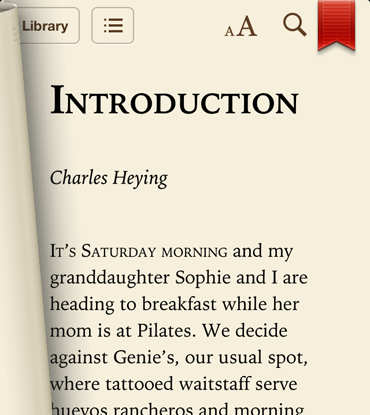
I assisted Portland State University faculty members in the teaching of two digital publishing courses
Early on in my experience working at Ooligan Press, the student-run publishing house at Portland State University, I learned that most students didn't know how to make ebooks. After talking with people, the predominate reason that few publishing students were interested in a part of the industry that now makes up 23% of net revenue was that they were intimidated by the technology behind it. They wanted to learn, but they were avoiding digital publishing because they didn’t think they would be able to do it.
I could relate. The apprehension leading up to my first day as a Digital Content member wasn’t insignificant, but I wanted to learn, so I jumped in. After teaching myself the ropes of html and css, I spent my time as Digital Content manager teaching the other students what I had learned.
Around the same time, I was working on an online tutorial teaching ebook design, and while talking with the head of the publishing program, Abbey Gaterud, suggested the idea of a one credit course that taught the digital languages—html, css, and xml—necessary for making ebooks. At the time, the program was looking for more one credit course options. Abbey thought the idea was a good one and graciously volunteered to teach the course and have me as the ta. The number of students that signed up for the class was noticeably higher than the average.
I remember leaving an early class with a big grin on my face. My fellow students were learning and asking great questions, and because many of the early classes were based off of my instructional design tutorial, I had played a part.
After the one credit Digital Languages course, I talked with Digital Publishing instructor Amanda Gomm about assisting her with her class, and she agreed.
Learning to code is not easy—it's becoming fluent in a new language family—but I still find that the main roadblock people have to achieving digital literacy is that they convince themselves that the subject is harder than it is. It's very hard to learn when you're intimidated. I hope to continue contributing to digital education by spreading the idea that computers are a tool—a helper, not an enemy—and nothing to be anxious about.